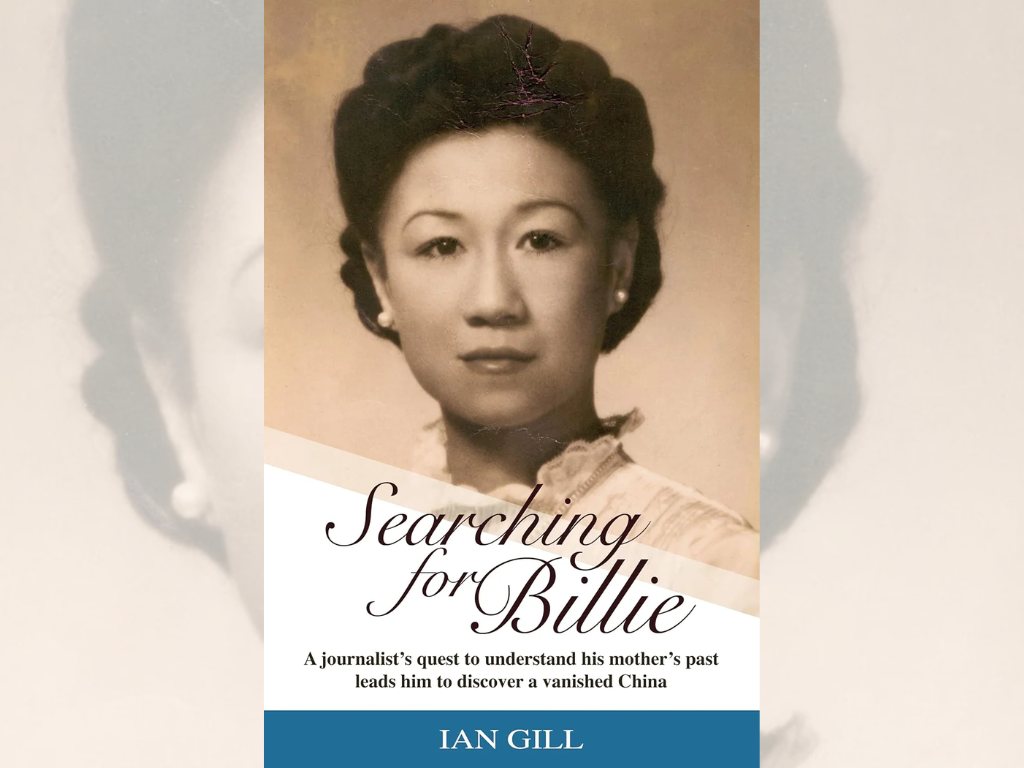Book Review: August
Searching for Billie by Ian Gill (2025), Blacksmith Books
- Genevieve Hilton / Bookish Everybody
Share

“What were things like when you were younger, Mummy?”
Many children have asked this question, but never before has the answer come as it did to Ian Gill, author of Searching for Billie. In this extraordinary saga that parallels the great historical moments of China in the nineteenth and twentieth century, the author traces his mother’s family history from its origins in the English countryside to the present day.
Those who enjoy historical fiction by Christopher New, John Lanchester and James Clavell will find here a factual story that evokes these tales, but whose reality is far stranger and more poignant.
The story begins with Gill’s great-grandmother, Mary Ann Warner, a plucky young Englishwoman who ended up running a fashionable resort in Chefoo (now Yantai), China. The author provides an impressive level of detail about sights, sounds and smells of nineteenth century China. We then learn about the author’s grandfather, Frank Newman, who took the then-outrageous step of marrying a Chinese girl, and helped to establish the Chinese post office in locations from Chongqing to Harbin.
Most of the book, however, centres on the author’s mother. This remarkable woman, Chinese by birth, started life as an abandoned infant adopted by Frank Newman, formed an unbreakable network with classmates at the Shanghai Public School for Girls, suffered at Stanley Prison Camp, established herself as a journalist, and ultimately rose to oversee global disarmament negotiations at the United Nations in Geneva.
Billie’s tale was intertwined with the most important figures of twentieth-century China, including Chiang Kai shek and the Soong sisters, Ernest Hemingway, W.H. Donald, and others. Reading about her offers an intimate picture of the intrigue behind every major event of the time. It also provides a deep and nuanced picture of race relations, including the complex position of Eurasians.
The book becomes much more terse and serious in its description of the Japanese occupation of Hong Kong in the early 1940s and Billie’s internment in Stanley. There, she endured unimaginable privations, lost her first son in a tragic accident, and conceived her second son (the author) with a man who later returned to his wife in Canada. After the second world war, she moved from New Zealand to UK, then back to China, to the Philippines, Thailand, and, ultimately, Switzerland.
The author writes in an old-fashioned style that matches the era of the narrative. This includes some dated language (one character is described as “a tiny Japanese”) and over-long sentences (“Of pressing concern, however, was the threat to the personal safety of Hart who was in the Peking Legation when, in June, some 20,000 Boxers, who practised martial arts and believed they possessed magical powers making them impervious to bullets, assembled outside, calling for the annihilation of the foreigners”). However, it is effective in evoking the time period, making the moments when the author makes a brief return to the present day almost feel intrusive. It can also be difficult to keep track of the characters as they launch newspapers, conduct international campaigns, and visit opium dens.
At its heart, the book is a fascinating story about an indomitable woman, written with enormous love and sensitivity. It is this, above all, that makes it a welcome and enriching addition to the corpus of pre-war and wartime China literature.
This book can be bought from Blacksmith Books, www.blacksmithbooks.com.
Share
About the Author

Bookish Everybody
Books and reading are too often on the periphery. Enter: Bookish Everybody, a one-stop community of book enthusiasts to read or write reviews, join read-alongs, buy/sell/give books and join our competitions to win books: www.bookisheverybody.com.
New Stories
Stay Up To Date
Want the latest insights and fresh content delivered straight to your inbox? Subscribe to our newsletter and stay updated with our exclusive content!












